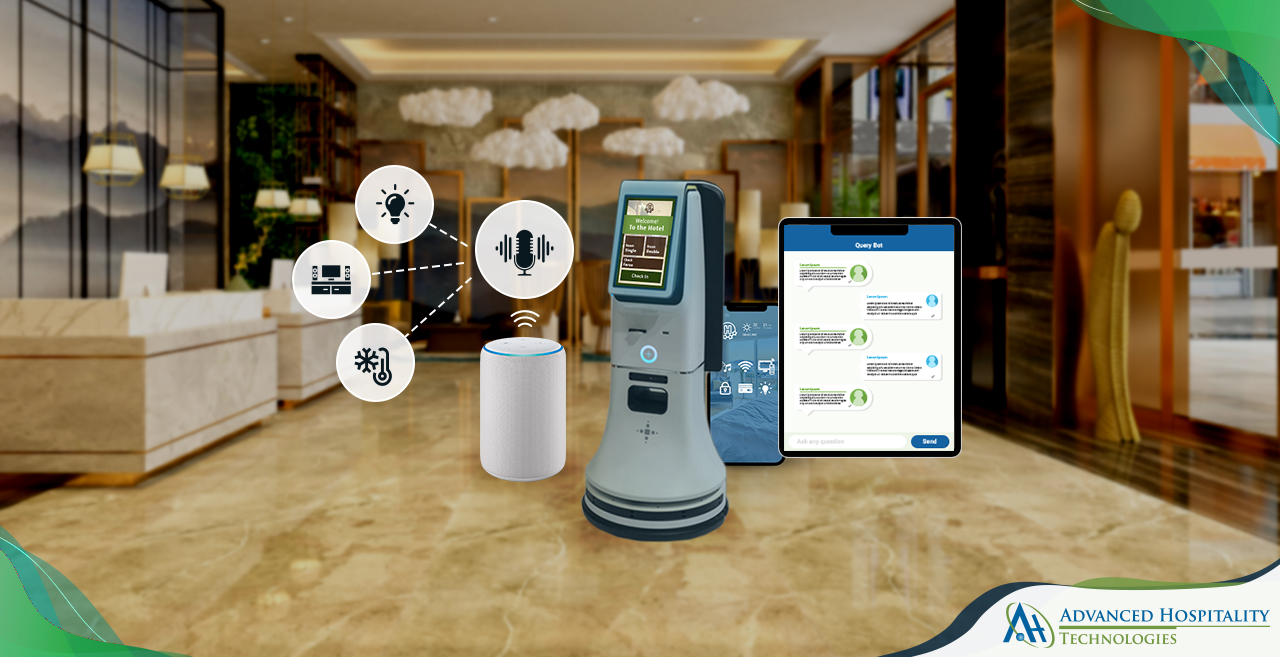Guest Experience is the most important aspect of the hospitality industry. Hotels direct most of their resources towards improving guest services and strive to maintain that level of service in this highly competitive industry. With the surge in use of technology in hospitality industry combined with the fact that guests are expecting more technology from hotels day by day, technology has become the core of guest experience.
Hotels strive to provide an environment that reminds guests of their homes when they are staying with the property, and since majority of households have at least a couple of smart devices in them it is fair to assume that guests have started to expect the same in hotel rooms. In short as most of the guests have “smart” homes, they also expect “smart” hotels.
WHAT IS A SMART HOTEL?
We can consider any environment as a “smart” environment if it contains electronic appliances that are interactive and are connected to internet, this is most commonly called “Internet of Things” (IOT). Similarly, in case of hotel rooms if a hotel room includes electronic appliances that are interactive and connected to internet, it may be called “smart” room. This puts spotlight on hotel technology companies to provide hotels with new technological devices to enhance hotel guest services. Here are some hotel technologies that hotels can adopt to “smarten up” their properties:
VOICE CONTROLLED DEVICES:
Voice control devices are becoming a norm in many households. Amazon’s Alexa, Samsung’s Bixby and Apple’s Siri based smart home hubs and devices are widely used with ever increasing user base. Hotels strive to provide their guests with an experience that reminds them of their homes, and since voice-based devices are prevalent in homes, a guest may be more comfortable in their hotel room with a voice-based device for room controls. Hotels have been working to provide a centralized console to their guests for room controls including temperature control, light control etc. and this can be taken to the next level by using voice control.
ROBOTS:
At one time the word “robot” may seem like a very futuristic idea, but it is very much a reality today. Many different types of robots aur robotic services are deployed in many industries across the world. Hospitality also have had its fair share of experiments with the robots, some hotels have tried to introduce robot hotel concierge such as Hilton’s “Connie”, while Aloft and some others have utilized robots to provide room service to their guests. The use of robots for various tasks in a property is steadily increasing, and if hoteliers want to attract more guests to their properties by futuristic technology then they must consider using some robot-based service, which not only increases efficiency but also attract more guests by aesthetics.
SMART ENERGY MANAGEMENT:
Energy saving is a point of concern for many people, guests and hoteliers alike. And with surging energy prices, businesses are exploring methods to conserve energy. Similarly, a wide segment of travelers is also getting concerned by their carbon footprint and prefer energy efficient and environment friendly lodging options. Hotels can capitalize on this opportunity by installing smart energy management solutions. This will not only be a cost saving option for the hotels but providing the guest with room control with energy saving options will also be a success with the guests.
INTERACTIVE SERVICES FOR GUESTS:
Many hotels provide their guests with maps and informative material related to the area including sightseeing, restaurants, and notable places. Now hotels can up their game by using technology to make this material interactive. Some Holiday Inn hotels are using a custom app for their guests, which they can point to a map on the wall and see various options in an immersive way. Ideas like this can attract many guests to a property.
AI CHATS:
Instead of the traditional calls to the front desk, guests can be provided with an option to connect with an AI based chat via hotel app or in-room tablet. Based on machine learning these chat bots can provide customized answers to guests’ queries. This provides guests with a unique way of obtaining required information and that too 24/7 and without any delay.
CONCLUSION:
As the people are getting accustomed to smart devices in their everyday lives, same can be expected by guests from hotels. Hoteliers have to provide the same level of technology that guests are accustomed to in their daily lives. Similarly, smart technologies can be a game changer for hotels in attracting guests, by providing smart hotel technology properties can not only provide superior level of guest services but can also provide similar level of technology that they are used to in their houses.




